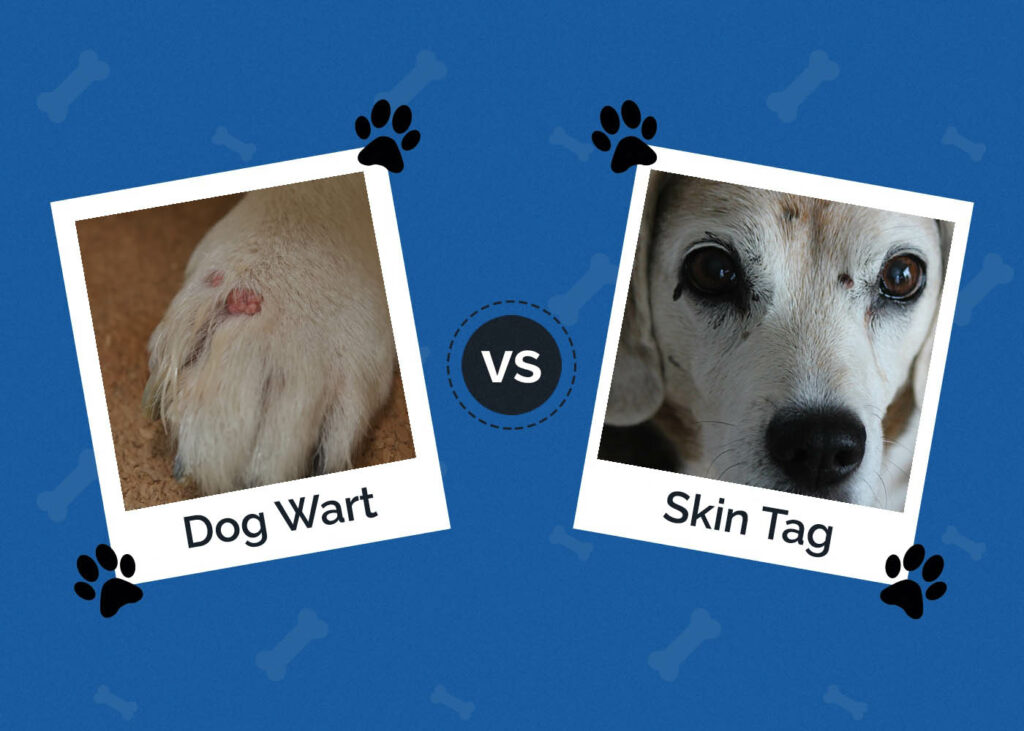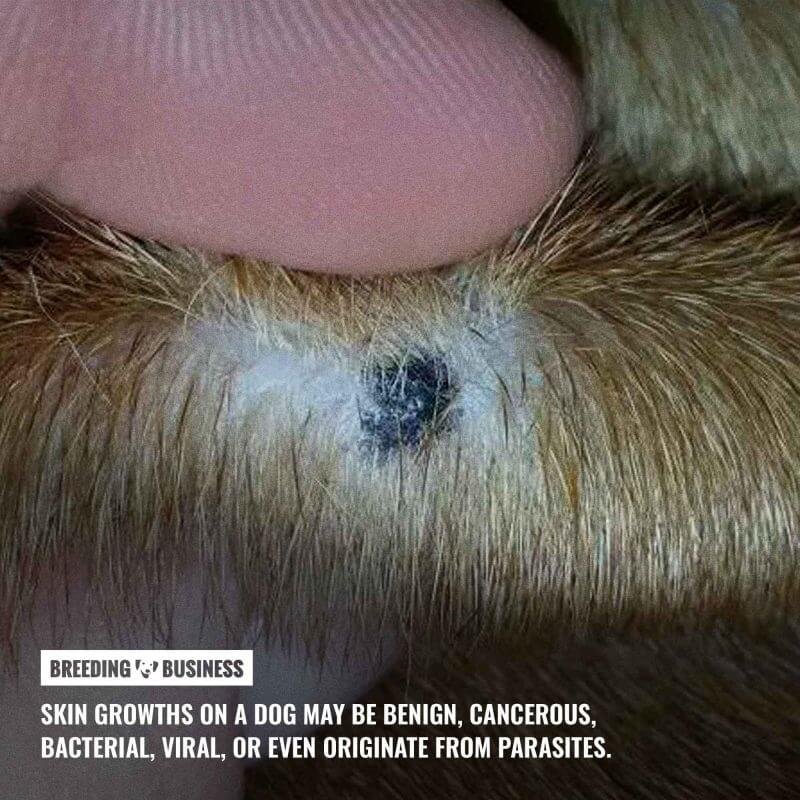Cancerous Skin Tags On Dogs: Understanding The Symptoms And Solutions
So here's the deal, doggos can get funky skin stuff too, and sometimes it's no joke. Cancerous skin tags on dogs might sound scary, but hey, knowledge is power, right? If you're a pup parent, it's super important to stay on top of your furry friend's health. Those little bumps or tags could mean something serious, so let's dive into what they are, how to spot them, and what to do next.
Now, don't panic just yet. Not every skin tag is cancerous, but it's always better to be safe than sorry. Your pupper's skin is as important as their wagging tail. In this article, we'll break down everything you need to know about cancerous skin tags on dogs and even throw in some images to help you identify them.
Let's face it, our dogs are family, and we want to make sure they're living their best lives. So grab a coffee, sit back, and let's chat about how to keep your fur baby happy and healthy. Trust me, your pupper will thank you later.
Read also:Kaitlyn Krems Nakedleaks The Truth Behind The Viral Sensation
What Are Cancerous Skin Tags on Dogs?
Alright, let's get real for a sec. Cancerous skin tags on dogs are basically abnormal growths on your dog's skin that could be a sign of something more serious. Think of them as little warning signs from your pupper saying, "Hey, check me out!" These growths can vary in size, shape, and color, and while not all of them are cancerous, it's always a good idea to have a vet take a look.
Here’s the kicker: dogs can develop different types of skin growths, and some of them might be harmless. But others, like malignant tumors, could spell trouble. The key is to catch them early and get the right diagnosis. That way, you can nip any potential problems in the bud before they get out of hand.
Types of Skin Growths in Dogs
Now, here's the lowdown on the different types of skin growths you might spot on your pupper:
- Benign Skin Tags: These are usually harmless and won't cause any issues. Think of them as your dog's version of a beauty mark.
- Cancerous Skin Tags: These bad boys can be a sign of something more serious, like skin cancer. If you notice any changes in size, shape, or color, it's time to hit up the vet.
- Histiocytomas: These are common in younger dogs and usually go away on their own. But hey, better safe than sorry, right?
- Mast Cell Tumors: These can be tricky because they can look like innocent little bumps, but they're actually a type of cancer that needs immediate attention.
How to Identify Cancerous Skin Tags on Dogs
Spotting cancerous skin tags on dogs isn't always a walk in the park. Sometimes, these growths can be sneaky and hide in places you wouldn't expect. But don't worry, we've got you covered. Here's what to look out for:
First things first, take a good long look at your pupper's skin. Check for any unusual lumps, bumps, or discolorations. If you notice anything that seems off, it's time to play detective. Here are some red flags to watch out for:
- Growth that changes in size, shape, or color
- Sores that won't heal
- Redness or swelling around the growth
- Unusual discharge or bleeding
And here's the deal: if you're not sure what you're looking at, don't guess. Always consult a professional. Your vet is your best friend when it comes to keeping your pupper healthy.
Read also:Salice Rose Leaked The Untold Story You Need To Know
Using Images to Identify Skin Tags
Okay, so you've done your research, and now you're ready to take a closer look. But how do you know if what you're seeing is a cancerous skin tag? Lucky for you, there are tons of resources out there to help you identify potential problems.
Check out some cancerous skin tags on dogs images online. These pics can give you a better idea of what to look for. But remember, just because something looks similar doesn't mean it's the same. Always get a second opinion from your vet.
Causes of Cancerous Skin Tags in Dogs
So, what causes these pesky little growths anyway? Well, it's not always clear-cut. Sometimes, genetics can play a role. Certain breeds are more prone to developing skin issues, so if your pupper is one of them, you'll want to keep an extra eye out.
Environmental factors can also come into play. Exposure to harmful UV rays, toxins, or even poor diet can increase the risk of skin problems in dogs. And let's not forget about age. Older dogs are more likely to develop skin issues, so regular check-ups are a must.
Preventing Skin Tags in Dogs
While you can't always prevent cancerous skin tags on dogs, there are steps you can take to reduce the risk. Keep your pupper's skin healthy by feeding them a balanced diet and making sure they get plenty of exercise. Regular grooming sessions can also help you spot any potential issues early on.
And don't forget about those vet visits. Regular check-ups are key to catching any problems before they become serious. Think of it as an investment in your pupper's long-term health.
Diagnosing Cancerous Skin Tags
So, you've noticed something funky on your pupper's skin. Now what? The first step is to schedule a visit with your vet. They'll do a thorough exam and may even take a biopsy to determine if the growth is cancerous.
Here's the scoop: diagnosing cancerous skin tags on dogs isn't always straightforward. Sometimes, further testing is needed to get a clear picture. But don't worry, your vet is there to guide you through the process and help you make the best decisions for your furry friend.
Treatment Options for Cancerous Skin Tags
If your pupper is diagnosed with a cancerous skin tag, don't freak out just yet. There are treatment options available, and the sooner you address the issue, the better the outcome. Here's what your vet might suggest:
- Surgical removal: This is often the first step in treating cancerous growths. Your vet will remove the tag and send it off for testing to ensure it's all gone.
- Radiation therapy: In some cases, radiation might be used to shrink the tumor before or after surgery.
- Chemotherapy: If the cancer has spread, chemo might be an option to help manage the disease.
And here's the deal: every pupper is different, so the treatment plan will depend on the specific situation. Your vet will work with you to come up with the best course of action for your furry friend.
Living with a Dog with Cancerous Skin Tags
Having a pupper with cancerous skin tags can be tough, but it's not the end of the world. With the right care and support, your furry friend can still live a happy, healthy life. Here are a few tips to help you navigate this journey:
First, stay positive. Your pupper feeds off your energy, so keeping a good attitude can make a big difference. Second, follow your vet's recommendations to the letter. Whether it's medication, diet changes, or lifestyle adjustments, consistency is key.
And don't forget about yourself. Caring for a sick pupper can be emotionally draining, so make sure you're taking care of your own mental health too. Lean on your support system and don't be afraid to ask for help when you need it.
Support and Resources for Dog Owners
There are tons of resources out there for dog owners dealing with cancerous skin tags. From online communities to support groups, you're not alone in this. Connecting with other pupper parents can provide valuable insights and emotional support.
And let's not forget about the pros. Your vet and their team are there to guide you every step of the way. Don't hesitate to ask questions or voice your concerns. After all, your pupper's health is their top priority too.
Conclusion: Taking Action for Your Furry Friend
Alright, so now you know the deal with cancerous skin tags on dogs. It's not always easy, but with the right information and support, you can help your pupper live their best life. Remember, early detection is key, so keep those eyes peeled for any changes in your pupper's skin.
And here's the thing: you're not alone in this. There are tons of resources and experts out there ready to help you navigate this journey. So whether it's scheduling that vet visit or joining a support group, take action today. Your pupper deserves nothing less than the best care possible.
So what are you waiting for? Get out there and show your furry friend some love. They'll thank you for it, and so will we. And hey, don't forget to share this article with other pupper parents who might find it helpful. Together, we can make a difference in the lives of our four-legged friends.
Table of Contents
- What Are Cancerous Skin Tags on Dogs?
- Types of Skin Growths in Dogs
- How to Identify Cancerous Skin Tags on Dogs
- Using Images to Identify Skin Tags
- Causes of Cancerous Skin Tags in Dogs
- Preventing Skin Tags in Dogs
- Diagnosing Cancerous Skin Tags
- Treatment Options for Cancerous Skin Tags
- Living with a Dog with Cancerous Skin Tags
- Support and Resources for Dog Owners


